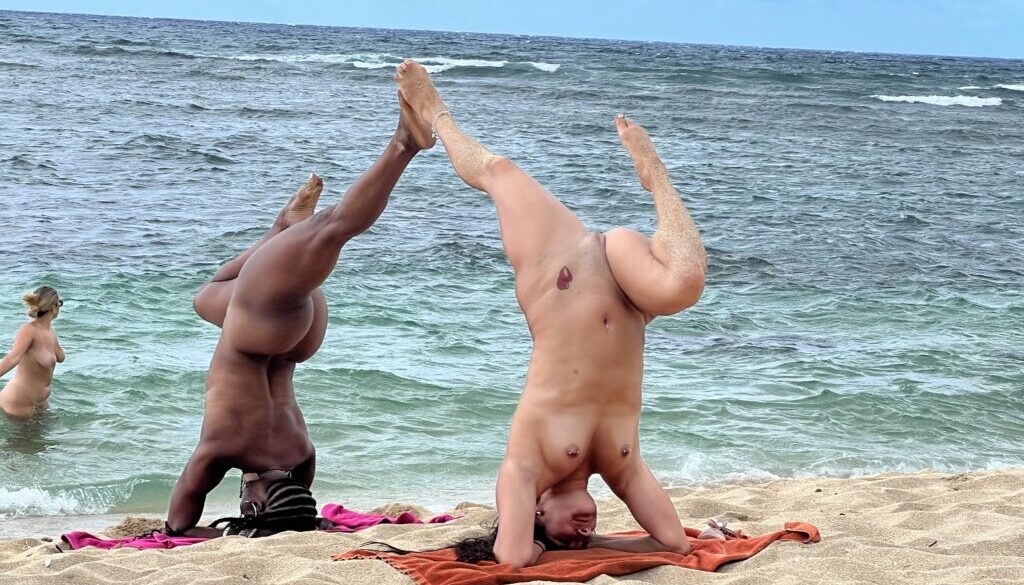Common Queries of 1st Time Practitioners
Nudism, also known as naturism, is a lifestyle choice that’s often misunderstood due to societal norms and perceptions. It entails living one’s life in a state of nudity either in private or public spaces (where legally acceptable). While such a way of life may seem alien or uncomfortable to some, many people find it liberating and claim it offers numerous benefits. For those contemplating about exploring nudism, this guide aims to answer common queries and concerns you might have as a first-time practitioner.
Understanding the Philosophy of Nudism
Nudism is more than just being naked; it’s a philosophy that encourages acceptance and respect for the body in its natural state. It seeks to liberate people from the societal pressures and standards of ‘ideal body.’ Nudism promotes body positivity and acceptance, fostering an environment where people feel comfortable with their bodies, irrespective of shape, size, or age. It also promotes a sense of freedom, rejecting the idea that nudity is solely sexual or shameful. By embracing nudity, nudists argue that they can connect more deeply with nature and achieve a heightened sense of self-awareness.
Nudism: Legal Aspects and Rights
The legal aspects of nudism vary widely, depending on the jurisdiction. In some places, public nudity is considered a crime, while in others, it is accepted under certain conditions or in designated areas. Many countries recognize the right to be naked in one’s own home or on private property. However, it is wise to fully understand local laws and regulations before practicing nudism in public places. It is also worth noting that nudism is not about exhibitionism or voyeurism, and any sexual behavior in nudist communities is generally considered inappropriate and disrespectful.
Cultural and Social Aspects of Nudism
Nudism has its roots in many ancient cultures where clothing was used primarily for protection against the elements, rather than for modesty. Today, nudism is embraced in various forms across different cultures worldwide. Nudist communities are typically characterized by a strong sense of camaraderie and shared respect for each other’s personal space. Social nudity often facilitates conversation and bonding, allowing people to connect on a deeper level, unmasked by the artificial barrier of clothing. It’s also important to understand that nudism is not inherently sexual; it is about feeling free and embracing the natural human form.
Psychological Benefits of Practicing Nudism
Several psychological benefits are associated with practicing nudism. It promotes self-acceptance and body positivity, reducing body image issues and boosting self-esteem. The act of shedding clothes can also help in shedding inhibitions, fears, and anxieties, leading to psychological liberation. The acceptance of one’s body and the bodies of others can reduce social anxieties and promote healthier social interactions. Moreover, some studies suggest that exposure to sunlight on the entire body can boost mood and promote vitamin D production, leading to better physical health.
Practical Advice for First-Time Practitioners
Embarking on the nudist journey requires some preparation. Start by becoming comfortable with your nudity at home. Spend some time each day in the nude to familiarize yourself with the feeling. Research about nudist clubs or resorts in your area and consider visiting. Remember, consent and respect are crucial in any nudist environment. Always respect others’ personal space and don’t stare or make inappropriate comments. Equally important is to take care of your hygiene and always sit on a personal towel when in public areas.
Addressing Common Concerns about Nudism
One common concern about nudism is the fear of judgement or ridicule due to body image. However, nudist communities are typically very accepting and non-judgmental. Another concern is the fear of unwanted attention or harassment. Again, respect and consent are cornerstones of nudist philosophy, and inappropriate behavior is not tolerated. If considering public nudism, you might worry about legal repercussions. Thus, it’s important to familiarize yourself with the local laws and regulations regarding nudity. Lastly, concerns about hygiene or discomfort can be addressed by practicing good personal hygiene and being prepared with essentials like sunscreen and towels.
Conclusion
Nudism is a personal choice and not for everyone. However, it can offer a liberating experience and a unique perspective on body acceptance, freedom, and self-awareness. For those considering this lifestyle, it’s essential to take informed steps, respect others, and most importantly, be comfortable with your decision. With the right mindset and understanding, nudism can be a rewarding journey towards personal growth and self-discovery.
External Mental Health Resources
Sexual Repression
Benefits of Nudism
Read Top 10 Benefits of Nudism by Marc of Nude and Happy
- Read The health benefits of being naked: How stripping down is good for you by Jordi Lippe-McGraw of Today
- Read Exploring the Benefits of Nudism: A Look at the Positive Aspects of Going Clothes-Free of Allo Health
- Read 12 Benefits of Nudism by Gary Holden of AANR
- Read Surprising Health Benefits of Being Naked by Elizabeth Marglin of The Upside
- Read 10 Ways Naturism Is a Healthy Lifestyle by Joseph Duprey of Listverse
That concludes this Pink Paper.
Browse our Categories of Pink Papers:
Featured Image:

Featured Image Credit:
An iPartyNaked photo by Naked Jesus. © iPartyNaked.com. All Rights Reserved.
Check out these Pink Papers:
These Pink Papers are Pillar Content, and we think they’re interesting.















































